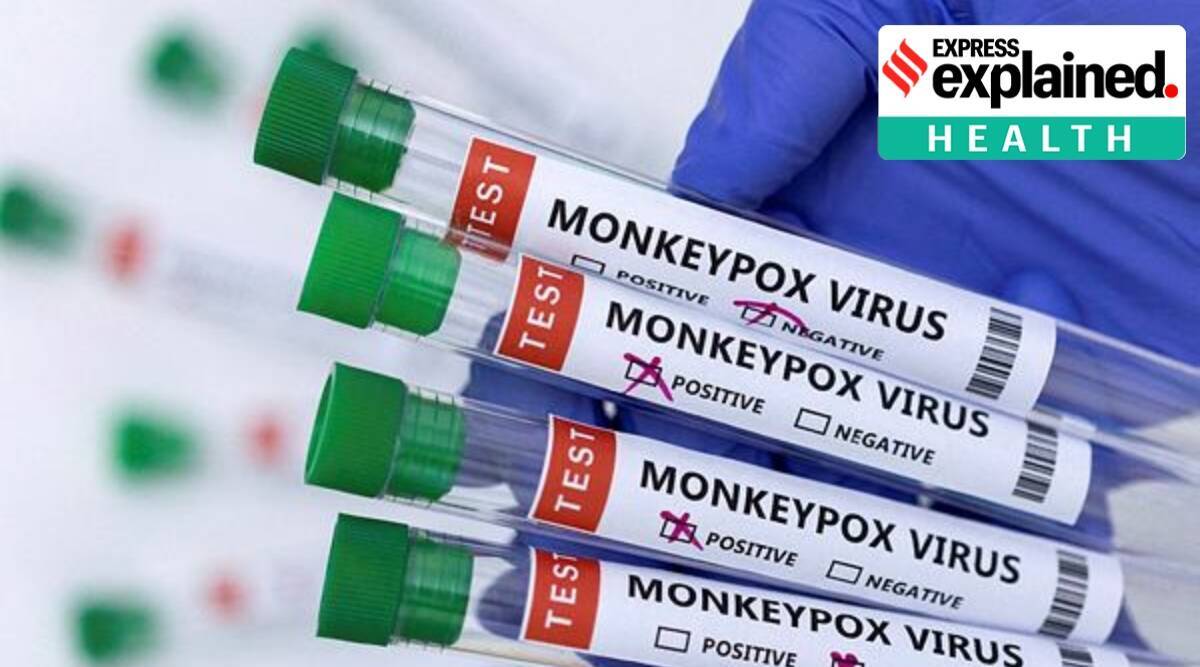CURRENT AFFAIRS
Get the most updated and recent current affair content on Padhaikaro.com
Treating monkeypox with antivirals: findings
- Integrity Education, Delhi
- 25, May 2022

The study documents patients’ response to two antiviral medications – brincidofovir and tecovirimat. These were developed to treat smallpox, and have previously demonstrated some efficacy against monkeypox in animals.
A new study on monkeypox suggests that some antiviral medications might have the potential to shorten symptoms and reduce the amount of time a patient is contagious. The retrospective study, published in The Lancet Infectious Diseases journal, was conducted on seven patients diagnosed with monkeypox in the United Kingdom between 2018 and 2021
The medications
The study documents patients’ response to two antiviral medications – brincidofovir and tecovirimat. These were developed to treat smallpox, and have previously demonstrated some efficacy against monkeypox in animals
The study found little evidence that brincidofovir was of clinical benefit, but concluded that further research into the potential of tecovirimat would be warranted
Between 2018 and 2019, four patients were treated for monkeypox in High Consequence Infectious Disease (HCID) units in England. Three of these cases were imported from West Africa. The fourth occurred in a healthcare worker, the first example of monkeypox transmission in a hospital setting outside of Africa.
Three further cases were reported in the UK in 2021 in a family travelling from Nigeria, with two of these cases being the first examples of household transmission outside of Africa
How they responded
The three patients of 2018-19 whose infections were imported from West Africa were treated with brincidofovir seven days after the onset of the rash. Brincidofovir was not observed to have any convincing benefit. The researchers noted, however, that it is not known whether brincidofovir administration earlier in the course of the disease or at a different dosing schedule would have yielded different outcomes. All four patients fully recovered.
The three patients of 2021 included a child, who experienced mild illness and recovered. One of them was treated with tecovirimat and experienced a shorter duration of symptoms and upper respiratory tract viral shedding than the other cases in this cluster. However, the authors noted that conclusions cannot be drawn on antiviral effectiveness in such a small cohort. They called for further research into antivirals.
None of the patients experienced the common severe complications of monkeypox such as pneumonia or sepsis
Implications
Monkeypox, a rare disease, is caused by a virus that is a close relative of the smallpox virus. There are currently no licensed treatments.
As optimum infection control and treatment strategies for this disease are not yet established, data from the study could help inform global efforts to further understand the clinical features of the disease as well as transmission dynamics, the authors said
“As public health officials are trying to understand what is causing the May 2022 monkeypox outbreaks in Europe and North America – which have affected several patients who reported neither travel nor an identified link to a previously known case – our study offers some of the first insights into the use of antivirals for the treatment of monkeypox in humans,” said Dr Hugh Adler of the Liverpool University Hospitals NHS Foundation Trust, lead author on the paper.
Source : The Indian Express